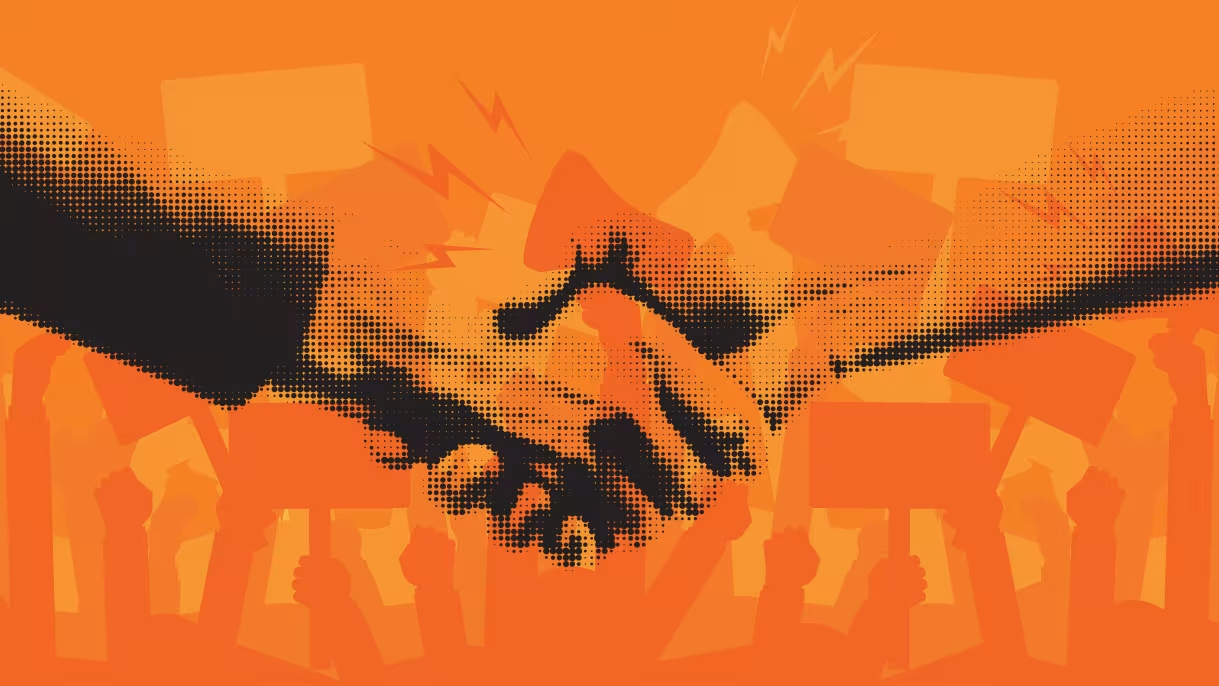

Keeping Communities Safe From Political Violence
As political tensions rise across the United States, the Bridging Divides Initiative (BDI) at the Princeton School of Public and International Affairs is drawing attention to how communities are working to stay safe in moments of conflict.
The initiative, a non-partisan research organization that tracks and attempts to mitigate political violence in the U.S., released a discussion paper in September based on interviews with more than 30 de-escalation and community safety practitioners and researchers. It explores how experts are helping people prevent violence and build trust in their neighborhoods and makes recommendations on how to strengthen their efforts.
“Leading practitioners are telling us that the demand for community safety and de-escalation resources to address the risk of political violence has surged over the past 10 years, and especially since the start of the new administration,” said Shannon Hiller, executive director of BDI. “In the current risk environment, amid an uptick in political assassinations and threats, the need is only going to continue to grow.”
The paper maps out a growing field of community safety and de-escalation work, even though many of the organizations interviewed have been training and protecting communities for a long time. These experts — including peacebuilders, legal advocates, and digital safety specialists — are responding to a surge in demand for tools that help communities navigate political violence.
Although the research for the paper was conducted in spring, its release on the heels of the Charlie Kirk assassination on Sept. 10 is timely. During a virtual event on Sept. 18, BDI staff and leading community safety practitioners discussed the importance of de-escalation training, shared resources, and emphasized the need to implement the paper’s recommendations.
A Changing Field with New Challenges
The paper finds that the approach to community safety is becoming more holistic. It now includes not just physical safety, but also mental health, legal protections, and digital security. This broader view helps practitioners support people more completely.
One popular method mentioned in the paper is CLARA — Calm, Listen, Affirm, Respond, and Add — a framework used to defuse tense situations. While many groups use CLARA, they often adapt it to fit their specific communities and needs. The paper includes training tips that specify how to implement de-escalation models.
Practitioners also say that political violence requires different strategies than other types of conflict. Because political disputes can be deeply emotional and divisive, interventions must be carefully designed to avoid appearing biased.
The paper offers four key recommendations raised by practitioners for their colleagues and other stakeholders:
- Create a community safety and de-escalation consortium for coordination and learning.
- Improve ways to measure impact, including better data tools.
- Raise awareness among funders and the public.
- Build a shared library of best practices and training materials.
Building Connections and Support
While the field is growing, many practitioners feel isolated from others doing similar work. The paper recommends creating a consortium to help experts share information, coordinate efforts, and build stronger networks.
“This is a collaborative field by nature,” Hiller explained. “We heard a lot from practitioners about how they can share best practices, work together to maximize impact, or build a stronger volunteer base for this work.”
Funding remains a major challenge. Many organizations rely on small grants, donations, or sliding-scale fees. Federal funding cuts have made it harder to grow, and experts say more support from state and local governments is urgently needed.
“Policymakers have to prioritize investments in local conflict resolution skills and organizations — exactly those outlined in this discussion paper — for these practitioners to be able to do their important work sustainably,” Hiller added.
BDI has already taken steps to support the field. In 2022, it launched the Community Safety and De-Escalation Directory to help partners find tools and resources. Now, the organization is leaning into its role as a convener and researcher to strengthen the community of practice.
“Practitioners are eager for expanded infrastructure for information-sharing and threat assessment,” said Theo Sitther, BDI’s policy director. “We hope this research spotlights new opportunities for growth and collaboration across the ecosystem, and that it galvanizes funders and policymakers to support these groups as they rise to meet the moment.”

